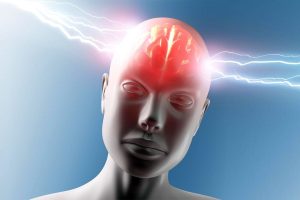Are dizziness and vertigo disorders a brain disease? How to research these diseases?

Are dizziness and vertigo disorders a brain disease? How to research these diseases?
Dizziness and vertigo are common complaints that can significantly impact daily life comfort. These conditions can range from simple balance loss to more complex neurological conditions. Dr. Mustafa Zafer Demirtaş, a renowned neurology specialist based in Alanya, emphasizes the importance of accurately diagnosing the underlying causes of these conditions and identifying appropriate treatment methods. While dizziness and vertigo are often associated with inner ear issues, they can sometimes be indicators of more serious brain diseases.
What are Dizziness and Vertigo?
Dizziness is a general term that can describe a variety of sensations including a sense of imbalance, light-headedness, or feeling as if the ground is unstable. Vertigo is more specific, characterized by the sensation that the environment or oneself is spinning, typically associated with issues in the vestibular system within the inner ear. However, these symptoms can also be signs of more serious conditions related to the brain, such as migraines, brain tumors, or circulatory problems in the brain.
Investigation and Diagnosis Process
According to Dr. Mustafa Zafer Demirtaş, a comprehensive evaluation process is necessary to determine the causes of dizziness and vertigo. This process usually includes the following steps:
- Collecting Medical History: A detailed interview with the patient is conducted to inquire about the onset, duration, triggering factors, and any other accompanying symptoms of the symptoms.
- Physical and Neurological Examination: The patient undergoes a thorough physical examination, with a particular focus on neurological examination to identify any underlying causes.
- Imaging Tests: Imaging tests such as MRI or CT scans may be performed to check for abnormalities in the brain’s structure.
- Balance and Hearing Tests: Various balance and hearing tests can be applied to assess the function of the vestibular system and inner ear. These tests can detect vestibular nystagmus, hearing loss, or other abnormalities.
- Other Tests: Depending on the situation, additional tests such as blood tests or EKG to assess heart rhythm may also be required.
Treatment Methods
The treatment of dizziness and vertigo varies depending on the underlying causes. Dr. Demirtaş lists some common treatment methods:
- Medical Treatment: Certain medications can be effective, especially in vertigo originating from the inner ear.
- Physical Therapy: Vestibular rehabilitation therapy can help some patients improve balance issues.
- Lifestyle Changes and Diet: Some patients may benefit from lifestyle changes such as reducing salt intake and regular exercise.
- Surgical Methods: In rare cases, especially for vertigo stemming from a specific inner ear condition, surgical intervention may be required.
Dr. Mustafa Zafer Demirtaş advises patients experiencing dizziness or vertigo to consult a neurology specialist to determine the underlying causes and develop an appropriate treatment plan. Early diagnosis and treatment can significantly improve patients’ quality of life.







